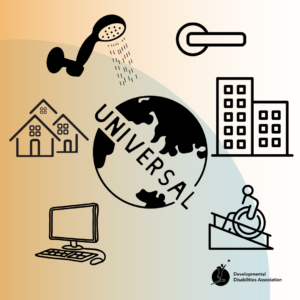VANCOUVER, B.C.— The recent media coverage of the proposed layoffs of dozens of developmentally disabled people in Ottawa due to the end of a 30- year contract for paper disposal
with the federal government sparked well-founded interest and concern. For people with disabilities, these employment opportunities represent much more than simply jobs – they also provide a source of self-esteem, income, social networks and dignity. Although the public outcry has won a reprieve in this particular case, the fundamental issue across all of Canada is how to create fair employment opportunities for persons with disabilities and other barriers to employment, especially when the employment also provides vital social inclusion. One solution that is emerging is called social enterprise.
Social enterprises are businesses operated by non-profit organizations for the blended value of generating income from sales and creating a social impact. Like any business, the social enterprise model places strong emphasis on producing a service or product that meets consumer demand and
need. As a non-profi t organization, though, the model ensures that, rather than focus only on profits it generates social value as well, such as targeted and supported employment opportunities. The social enterprise model offers the potential for leveraging social value from existing government procurement and private sector supply chains. By purchasing from social enterprises, government and businesses meet two objectives simultaneously: the creation of targeted employment opportunities for persons with disabilities, youth at risk or anyone facing barriers to employment, all the while ensuring they’re receiving quality products without additional costs. Not surprisingly, the model has been growing in popularity in Canada as it offers non-profit organizations and charities a more sustainable, self-reliant future. More specifically to the context at hand, organizations are increasingly discovering that their social objectives and the health and success of persons with disabilities can be effectively met under this innovative business model called social enterprise.
Take Vancouver-based Starworks Packaging and Assembly. The social enterprise, established by the Developmental Disabilities Association (DDA), provides employment to over 50 individuals with developmental disabilities. Workers receive financial gain, an accessible work environment and skills training. Over in Winnipeg, ImagineAbility is a social enterprise that provides packaging and assembly services—and meaningful employment to over 200 people with intellectual disabilities. Both social enterprises build employee training and workplace support into their business models, ensuring they’re embedded in their vision, culture and long-term strategies.
Governments on all levels have taken some valuable initial steps to support social enterprise across Canada, and businesses have begun the process of adding social value in their supply chains, but we have a really long way to go. The upcoming Canadian
Conference on Social Enterprise in London, Ont., April 22 to 24, will bring people together from across the country to discuss and explore the value of social enterprises and their social impact. Considering the importance of these discussions and the various first steps starting to take shape among all sectors, there is perhaps no better time for the support of community-based social enterprise efforts.
Let’s all work together to achieve social impact and financially sustainable solutions so that persons with disabilities, and others who want to work, have that chance.
David LePage is chair of the Social Enterprise Council of Canada and Michael Toye is Executive Director of the Canadian Community Economic Development Network.
news@hilltimes.com
The Hill Times
Original article can be found here: How to create fair employment


